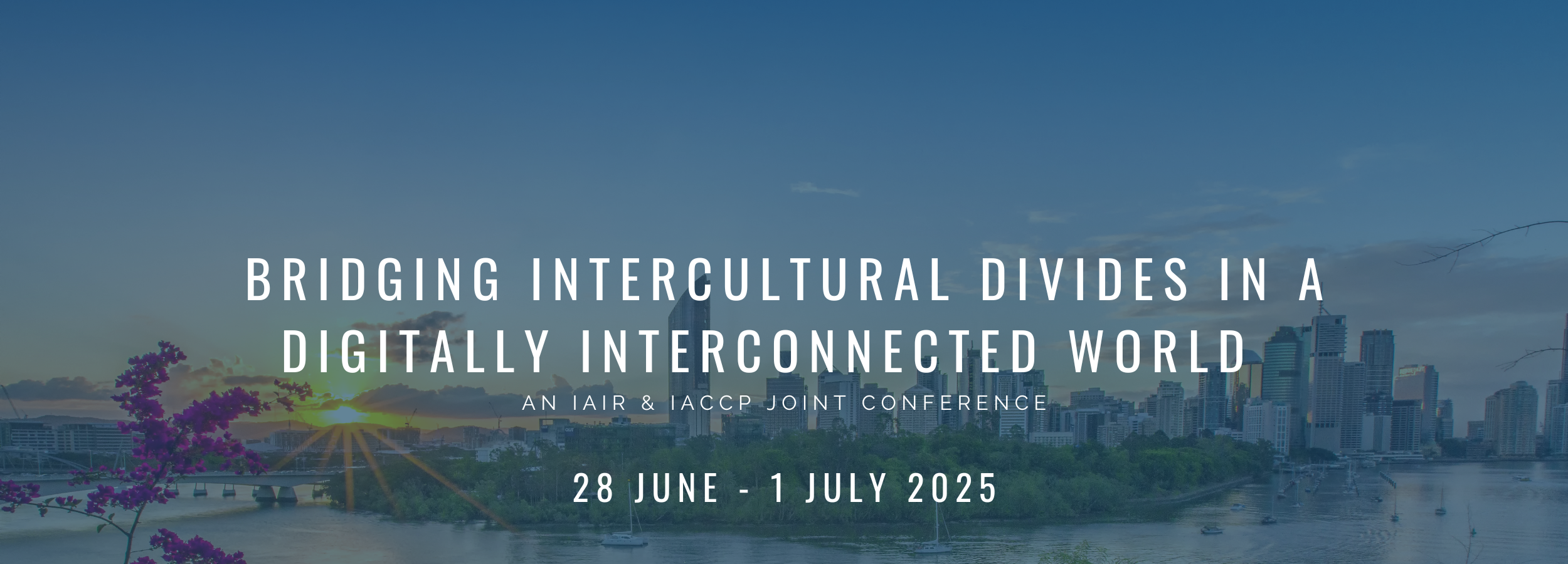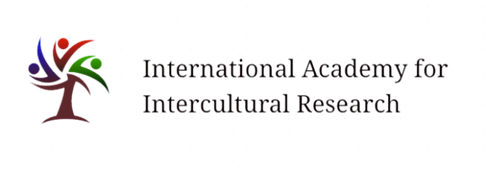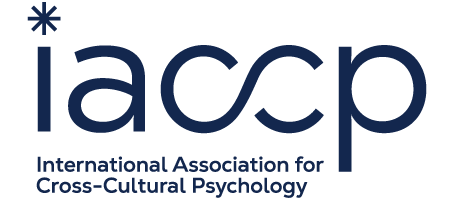Co-Chairs
Dr Jaimee Stuart
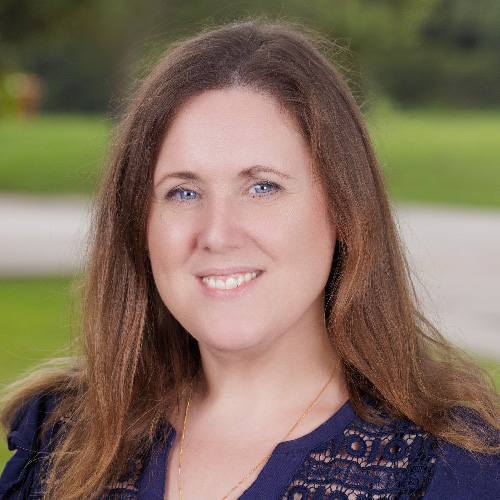 Dr. Jaimee Stuart is a Senior Researcher and Team Lead at the United Nations University Institute in Macau (UNU Macau). She is an applied cultural and developmental psychologist specialising in digital health and well-being. Her research focuses on computer-human interaction, examining a broad range of issues related to social justice, intercultural relations, peace, and development in the context of digital transformation. Her work aims to support the creation of safe and secure online spaces for everyone, although her specific focus concerns empowerment for minorities (cultural, religious, gender, and sexual orientation) as well as those who experience inflated risk factors (e.g., exposure to violence, low socio-economic status, displacement). Before joining UNU Macau, Dr. Stuart worked as the Research and Evidence Lead at Pathways in Place, Griffith University, Australia and is an Adjunct at the Schools of Psychology at Griffith University, Australia as well as Victoria University of Wellington, New Zealand.
Dr. Jaimee Stuart is a Senior Researcher and Team Lead at the United Nations University Institute in Macau (UNU Macau). She is an applied cultural and developmental psychologist specialising in digital health and well-being. Her research focuses on computer-human interaction, examining a broad range of issues related to social justice, intercultural relations, peace, and development in the context of digital transformation. Her work aims to support the creation of safe and secure online spaces for everyone, although her specific focus concerns empowerment for minorities (cultural, religious, gender, and sexual orientation) as well as those who experience inflated risk factors (e.g., exposure to violence, low socio-economic status, displacement). Before joining UNU Macau, Dr. Stuart worked as the Research and Evidence Lead at Pathways in Place, Griffith University, Australia and is an Adjunct at the Schools of Psychology at Griffith University, Australia as well as Victoria University of Wellington, New Zealand.
Assoc Prof Andre Pekerti
Dr. Andre A Pekerti is an Associate Professor i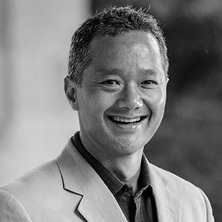 n the International Business Discipline at The University of Queensland. As an n-Cultural, his research focuses on (societal) culture and how it affects people’s behaviours. His research has explored cultural intelligence, servant leadership and ethical behaviour in society. Andre’s recent work and book look at multiculturalism within individuals and explore how we can maintain our cultural values and still behave appropriately in different contexts. He is on the editorial board of Asia-Pacific Journal of Management, Cross-Cultural and Strategic Management, Human Resource Management Review, International J. of Intercultural Relations, J. of International Business Studies, J. of World Business, and Honorary Editor of Andalas Management Review. He has consulted for Diner’s Club, Singapore; the Department of Transport Victoria, Australia; and the Ministry of Trade, Indonesia. Most recently he collaborated with BiasSync, a science-based solution designed to help organisations assess, train, and avoid unconscious bias.
n the International Business Discipline at The University of Queensland. As an n-Cultural, his research focuses on (societal) culture and how it affects people’s behaviours. His research has explored cultural intelligence, servant leadership and ethical behaviour in society. Andre’s recent work and book look at multiculturalism within individuals and explore how we can maintain our cultural values and still behave appropriately in different contexts. He is on the editorial board of Asia-Pacific Journal of Management, Cross-Cultural and Strategic Management, Human Resource Management Review, International J. of Intercultural Relations, J. of International Business Studies, J. of World Business, and Honorary Editor of Andalas Management Review. He has consulted for Diner’s Club, Singapore; the Department of Transport Victoria, Australia; and the Ministry of Trade, Indonesia. Most recently he collaborated with BiasSync, a science-based solution designed to help organisations assess, train, and avoid unconscious bias.
Local Organising Committee
Dr Riley Scott - Local Lead
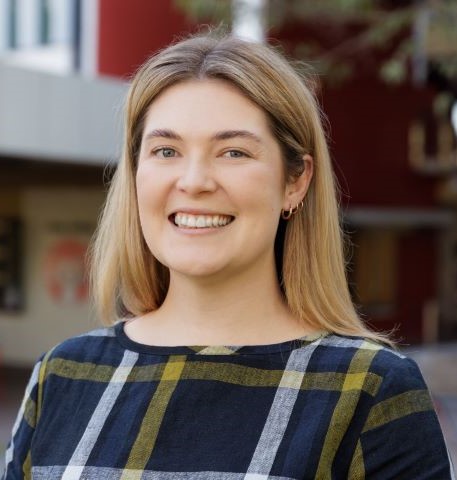 Dr Riley Scott is a Lecturer in the School of Psychology and Wellbeing at the University of Southern Queensland, Australia. She primarily conducts research in the areas of social and developmental psychology to understand risks and protective factors for youth wellbeing and development in the digital age. She is particularly interested in contemporary interpersonal relationships and wellbeing, social media literacy development in youth, and implications of online engagement for socially vulnerable youth. Riley currently teaches Developmental Psychology and Cross-Cultural and Indigenous Psychology, and coordinates Foundation Psychology courses at UniSQ.
Dr Riley Scott is a Lecturer in the School of Psychology and Wellbeing at the University of Southern Queensland, Australia. She primarily conducts research in the areas of social and developmental psychology to understand risks and protective factors for youth wellbeing and development in the digital age. She is particularly interested in contemporary interpersonal relationships and wellbeing, social media literacy development in youth, and implications of online engagement for socially vulnerable youth. Riley currently teaches Developmental Psychology and Cross-Cultural and Indigenous Psychology, and coordinates Foundation Psychology courses at UniSQ.
Dr Alice Bercean
 Dr Alice Bercean is a Lecturer within the Discipline of Counselling at the Australian College of Applied Professions, Australia. Her research interests are shaped by her clinical experience in counseling and psychotherapy as well as her personal experience as a migrant. She is particularly focused on mental health across cultures and cultural adaptation of evidence-based therapies. Her research has explored approaches to culturally adapt cognitive behavioral therapy for a migrant population in Australia experiencing depressive symptoms. Additionally, she is interested in educational approaches that aim to develop cultural competence and cultural humility among counseling and psychotherapy practitioners to promote equity-oriented clinical practice.
Dr Alice Bercean is a Lecturer within the Discipline of Counselling at the Australian College of Applied Professions, Australia. Her research interests are shaped by her clinical experience in counseling and psychotherapy as well as her personal experience as a migrant. She is particularly focused on mental health across cultures and cultural adaptation of evidence-based therapies. Her research has explored approaches to culturally adapt cognitive behavioral therapy for a migrant population in Australia experiencing depressive symptoms. Additionally, she is interested in educational approaches that aim to develop cultural competence and cultural humility among counseling and psychotherapy practitioners to promote equity-oriented clinical practice.
Catelyn Gunathilake
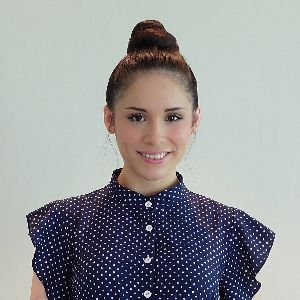 Catelyn Gunathilake is a content creator, designer, and qualified English and Mathematics teacher. She has extensive experience in developing educational content for children and adult learners and runs a Youtube Channel with nearly 10k subscribers catering to non native speakers of English. Catelyn has extensive experience in video production and editing, website and social media design, marketing and SEO. She is passionate about intercultural communication and education and consults on curriculum design and online content creation.
Catelyn Gunathilake is a content creator, designer, and qualified English and Mathematics teacher. She has extensive experience in developing educational content for children and adult learners and runs a Youtube Channel with nearly 10k subscribers catering to non native speakers of English. Catelyn has extensive experience in video production and editing, website and social media design, marketing and SEO. She is passionate about intercultural communication and education and consults on curriculum design and online content creation.
Dr Kathy Ryan
 Dr Kathy Ryan is a research fellow with the School of Applied Psychology at Griffith University on the Gold Coast, Australia. Her research interests include Developmental Psychology and Experimental Psychology. She currently works on an international project called Parenting in an Unsteady World and within the Family Interaction Program. Dr Ryan has been collecting data about overprotective parenting and its effect on adolescents and their parents in this longitudinal study for the Australian cohort, that is also being collected in 12 other countries. Her past research has been on the experimental work into exposure therapy for phobias, testing in fear conditioning, extinction and relapse of fear. Dr Ryan has also worked on the Australian Childhood Anxiety Treatment study, and the National Rugby League Rise program. Currently her work involves parenting of adolescents and young children, focused on the concepts of overprotective parenting, parental burnout and the importance on emotional socialization.
Dr Kathy Ryan is a research fellow with the School of Applied Psychology at Griffith University on the Gold Coast, Australia. Her research interests include Developmental Psychology and Experimental Psychology. She currently works on an international project called Parenting in an Unsteady World and within the Family Interaction Program. Dr Ryan has been collecting data about overprotective parenting and its effect on adolescents and their parents in this longitudinal study for the Australian cohort, that is also being collected in 12 other countries. Her past research has been on the experimental work into exposure therapy for phobias, testing in fear conditioning, extinction and relapse of fear. Dr Ryan has also worked on the Australian Childhood Anxiety Treatment study, and the National Rugby League Rise program. Currently her work involves parenting of adolescents and young children, focused on the concepts of overprotective parenting, parental burnout and the importance on emotional socialization.
Molly Speechley
 Molly Speechley is a PhD Candidate within the School of Applied Psychology at Griffith University, Mount Gravatt. Her primary research focus is gender diverse identity, and how processes formation of a gender diverse identity can interact with medical and allied health personnel.
Molly Speechley is a PhD Candidate within the School of Applied Psychology at Griffith University, Mount Gravatt. Her primary research focus is gender diverse identity, and how processes formation of a gender diverse identity can interact with medical and allied health personnel.
Albert Yu
 Albert is a PhD candidate in the international business discipline at The University of Queensland in Brisbane, Australia. His research topic is “Leader tolerance of ambiguity, dynamic capabilities, and innovation in international non-governmental organisations.” Previous to his doctoral studies, Albert worked in the international humanitarian industry for 20 years, holding various senior leadership and communications consulting roles. Albert is originally from the San Francisco Bay Area, California, USA.
Albert is a PhD candidate in the international business discipline at The University of Queensland in Brisbane, Australia. His research topic is “Leader tolerance of ambiguity, dynamic capabilities, and innovation in international non-governmental organisations.” Previous to his doctoral studies, Albert worked in the international humanitarian industry for 20 years, holding various senior leadership and communications consulting roles. Albert is originally from the San Francisco Bay Area, California, USA.
Scientific Committee
Professor Lily A. Arasaratnam-Smith
 Lily A. Arasaratnam-Smith is a professor of intercultural communication and Deputy Vice President Faculty at Alphacrucis. Her primary area of expertise is intercultural communication, particularly intercultural competence and intercultural contact-seeking behaviour. Her first book, Perception and Communication in Intercultural Spaces (University Press of America, 2011), presents "intercultural spaces" as a new framework with which to understand intercultural communication in today's culturally diverse communities. Her recent work on higher education includes the book Developing Intercultural Competence in Higher Education: International Students’ Stories and Self-Reflection (Routledge, 2022). Lily is president-elect of the International Academy for Intercultural Research. The winner of the 2018 Excellence in Teaching Award, Lily teaches in the areas of intercultural communication and research methodology.
Lily A. Arasaratnam-Smith is a professor of intercultural communication and Deputy Vice President Faculty at Alphacrucis. Her primary area of expertise is intercultural communication, particularly intercultural competence and intercultural contact-seeking behaviour. Her first book, Perception and Communication in Intercultural Spaces (University Press of America, 2011), presents "intercultural spaces" as a new framework with which to understand intercultural communication in today's culturally diverse communities. Her recent work on higher education includes the book Developing Intercultural Competence in Higher Education: International Students’ Stories and Self-Reflection (Routledge, 2022). Lily is president-elect of the International Academy for Intercultural Research. The winner of the 2018 Excellence in Teaching Award, Lily teaches in the areas of intercultural communication and research methodology.
Assoc. Professor Takeshi Hamamura
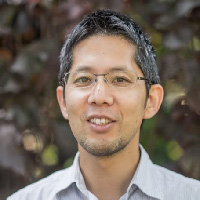 Takeshi Hamamura is an Associate Professor at Curtin University in Australia. He received his Ph D from the University of British Columbia and specialises in cultural psychology especially socio- ecological and historical analyses of norms and values in East Asia. Born and raised in Japan, Hamamura’s journey as a migrant across diverse landscapes in the U.S., Canada, Hong Kong, and Australia has deeply influenced his academic perspectives and commitment to recentering psychology. He is an Associate Editor for the Journal of Cross-Cultural Psychology.
Takeshi Hamamura is an Associate Professor at Curtin University in Australia. He received his Ph D from the University of British Columbia and specialises in cultural psychology especially socio- ecological and historical analyses of norms and values in East Asia. Born and raised in Japan, Hamamura’s journey as a migrant across diverse landscapes in the U.S., Canada, Hong Kong, and Australia has deeply influenced his academic perspectives and commitment to recentering psychology. He is an Associate Editor for the Journal of Cross-Cultural Psychology.
Emeritus Professor Kenneth Cushner
 Kenneth Cushner is an Emeritus Professor of Intercultural Teacher Education (Kent State University, 1987 – 2015); a Founding Fellow, Past-President and currently the Executive Director of the International Academy for Intercultural Research; twice been a Fulbright Scholar to Sweden (2008) and Poland (2016); a visiting professor at Shanghai International Studies University, the College of the Bahamas, University of Newcastle (Australia) and the University of Nis (Serbia). He is author or editor of several books and articles in the field of intercultural education including Human Diversity in Education: An Intercultural Approach (11th ed., 2024). Ken has taught with Semester at Sea on six voyages, most recently directing the Global Studies course on the Spring 2022 and 2024 voyages. Ken serves on the board of Orkeeswa School, a Maasai community schools northern Tanzania; Givat Haviva, an Israeli Jewish-Arab institute devoted to shared society initiatives; and Semester at Sea.
Kenneth Cushner is an Emeritus Professor of Intercultural Teacher Education (Kent State University, 1987 – 2015); a Founding Fellow, Past-President and currently the Executive Director of the International Academy for Intercultural Research; twice been a Fulbright Scholar to Sweden (2008) and Poland (2016); a visiting professor at Shanghai International Studies University, the College of the Bahamas, University of Newcastle (Australia) and the University of Nis (Serbia). He is author or editor of several books and articles in the field of intercultural education including Human Diversity in Education: An Intercultural Approach (11th ed., 2024). Ken has taught with Semester at Sea on six voyages, most recently directing the Global Studies course on the Spring 2022 and 2024 voyages. Ken serves on the board of Orkeeswa School, a Maasai community schools northern Tanzania; Givat Haviva, an Israeli Jewish-Arab institute devoted to shared society initiatives; and Semester at Sea.
Dr Nicolas Geeraert
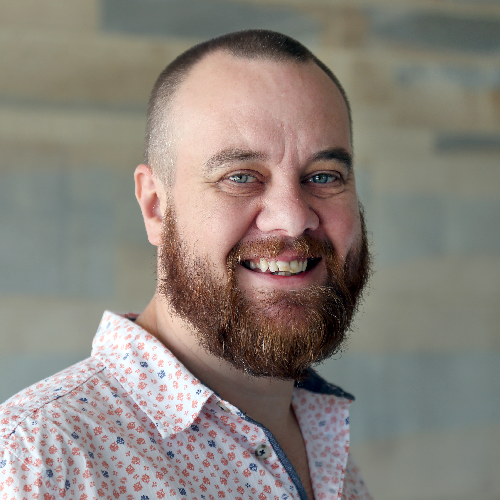 Dr Nicolas Geeraert is Reader at the University of Essex in the UK. He is a social psychologist, focussing on acculturation. He has done longitudinal work examining trajectories in acculturative stress, the interplay between stress and adaptation and the role of expectations in adaptation. Nicolas also examined contextual factors of acculturation, looking at the role of cultural tightness in sojourner adaptation, the impact of crossing the rice-wheat border, and examining acculturation processes in the family context (parent-child dyads and couples dyads). Nicolas currently teaches culture & psychology, social psychology, and statistics.
Dr Nicolas Geeraert is Reader at the University of Essex in the UK. He is a social psychologist, focussing on acculturation. He has done longitudinal work examining trajectories in acculturative stress, the interplay between stress and adaptation and the role of expectations in adaptation. Nicolas also examined contextual factors of acculturation, looking at the role of cultural tightness in sojourner adaptation, the impact of crossing the rice-wheat border, and examining acculturation processes in the family context (parent-child dyads and couples dyads). Nicolas currently teaches culture & psychology, social psychology, and statistics.
Professor Nigar Khawaja
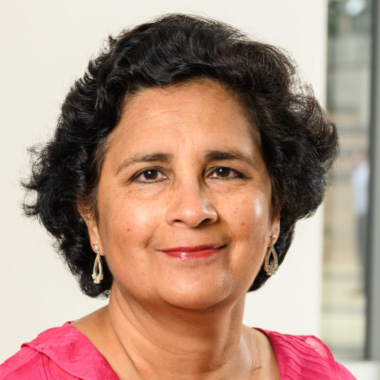 Professor Nigar Khawaja is an academic, researcher and a clinical psychologist. She is a Fellow of the Australian Psychological Society (APS) and its College of Clinical Psychology. As a Professor at the Queensland University of Technology, she has trained postgraduate students as Clinical Psychologists. She has pioneered and implemented cultural competency training programs for university graduates and psychologists. Her cross-cultural and transcultural research has examined the challenges of migrants, refugees, asylum seekers and international students. She has developed culturally safe and sensitive assessment measures and interventions for the ethnic minorities settled in the West. She has published around130 papers and presented at more than 65 international conferences. She has been successful with competitive grants and offers expert advice and consultation to government and non-government organisations. Through her public lectures and debates she educates the public and stakeholders about the issues of culturally and linguistically diverse communities in Australia.
Professor Nigar Khawaja is an academic, researcher and a clinical psychologist. She is a Fellow of the Australian Psychological Society (APS) and its College of Clinical Psychology. As a Professor at the Queensland University of Technology, she has trained postgraduate students as Clinical Psychologists. She has pioneered and implemented cultural competency training programs for university graduates and psychologists. Her cross-cultural and transcultural research has examined the challenges of migrants, refugees, asylum seekers and international students. She has developed culturally safe and sensitive assessment measures and interventions for the ethnic minorities settled in the West. She has published around130 papers and presented at more than 65 international conferences. She has been successful with competitive grants and offers expert advice and consultation to government and non-government organisations. Through her public lectures and debates she educates the public and stakeholders about the issues of culturally and linguistically diverse communities in Australia.
Dr Caroline Ng Tseung-Wong
 Dr Caroline Ng Tseung-Wong is a Senior Lecturer in the Discipline of Psychology, Faculty of Health at the University of Canberra, Australia. Her research interests stem from her personal experience of growing up as a minority group member in a multicultural context and her continued ethnic minority group position wherever she has lived. She explores multicultural identities, intergroup relations, and diversity ideologies, integrating social identity and acculturation approaches. Her focus is on minority identities and their integration and wellbeing. Caroline’s latest project is investigating migrant youth’s drinking attitudes and acculturation in Australia.
Dr Caroline Ng Tseung-Wong is a Senior Lecturer in the Discipline of Psychology, Faculty of Health at the University of Canberra, Australia. Her research interests stem from her personal experience of growing up as a minority group member in a multicultural context and her continued ethnic minority group position wherever she has lived. She explores multicultural identities, intergroup relations, and diversity ideologies, integrating social identity and acculturation approaches. Her focus is on minority identities and their integration and wellbeing. Caroline’s latest project is investigating migrant youth’s drinking attitudes and acculturation in Australia.
Dr Ágnes Szabó
 Dr Ágnes Szabó is a Senior Lecturer and a Rutherford Discovery Fellow in the School of Health at Te Herenga Waka - Victoria University of Wellington, Aotearoa New Zealand. Her reserach integrates life course approaches and acculturation theory with critical gerontology with a focus on the social and cultural determinants of health and wellbeing. She currently leads a 5-year project titled ‘Growing old in an adopted land’ funded by the New Zealand Royal Society–Te Apārangi. In this project, she uses a range of qualitative, narrative methods in combination with longitudnal survey data collection to investigate the ageing experiences of migrant communities in Aotearoa New Zealand.
Dr Ágnes Szabó is a Senior Lecturer and a Rutherford Discovery Fellow in the School of Health at Te Herenga Waka - Victoria University of Wellington, Aotearoa New Zealand. Her reserach integrates life course approaches and acculturation theory with critical gerontology with a focus on the social and cultural determinants of health and wellbeing. She currently leads a 5-year project titled ‘Growing old in an adopted land’ funded by the New Zealand Royal Society–Te Apārangi. In this project, she uses a range of qualitative, narrative methods in combination with longitudnal survey data collection to investigate the ageing experiences of migrant communities in Aotearoa New Zealand.
